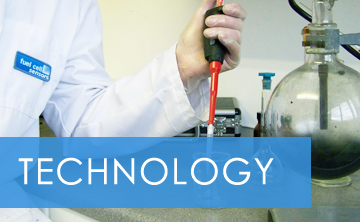Why Use Our Fuel Cell Technology
To test for the presence of alcohol on someone’s breath you need an analyser that is portable, easy to use, accurate and consistent. At the heart of the device is the sensor array. This one component is the key to whether your analyser will be a success
In the 19th Century people who were worse for wear through alcohol were dealt with by the police with imprisonment until they were sober. We now know that even small amounts of alcohol can impair someone’s judgement and capabilities. Driving high speed cars or operating highly complex machinery while intoxicated is never a good idea. Breath alcohol testing devices were first developed for use by the police in the 1940s to combat this problem in car drivers.
Since the mid-1980s, infra-red (IR) technology was the primary means of breath alcohol testing. Breath alcohol levels are found by passing a narrow band of IR light through one side of a breath sample chamber. The IR radiation is absorbed by the alcohol proportionally to its concentration.
The disadvantages of IR technology include high costs, non portability and difficulty in achieving specificity. Because of these limitations breath alcohol instrumentation manufacturers began to search for an alternative. Breath analysis has since evolved using fuel cells into a technology that offers a low cost, highly accurate, rapid analysis of a breath sample that is simple to collect.
Electrochemical cells, also known as fuel cells which is where we took our name from, is not a new technology. Fuel cells have their origins in the United Kingdom, with the world’s first fuel cell being demonstrated by British judge and scientist Sir William Grove in 1839. In 1922 Francis Bacon, a Cambridge University engineer, developed the first practical fuel cells. In the early 1970s this technology was incorporated into hand held instrumentation to give the first fuel cell based breathalyser.
Fuel Cell Sensors bring this technology right up to date and provide sensors in a number of form factors at very competitive prices. At the heart of each sensor is an electrode that has been developed specifically for the Breath Analysis Industry.
- Specifically tuned to detect alcohol on human breath
- No need for multiple sensors
- A linear response allows one point calibration of the system
- Low power requirement and a small footprint
To find out how our sensors could improve your detectors please contact our sales team. Did we mention that our prices also beat the competition hands down?



